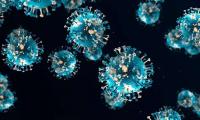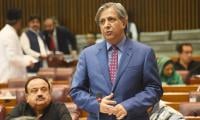PESHAWAR: The Hayatabad Medical Complex (HMC) administration has said that the Khyber Pakhtunkhwa Health Reforms Act 2015 has enabled the hospitals in essential improvement in the ailing health system, especially at the level of tertiary care hospitals of the province.
Following a whirlwind period of litigations and agitations by the opponents of these reforms, the nominated members of Board of Governors set out to implement its policy of change to improve the health delivery system. One institution, which stood out significantly in implementing these reforms, was Hayatabad Medical Complex, owing mainly to a very proactive and efficient Board of Governors and their administrative team on ground.
Independent sources and various peer organisations have actually acknowledged the unprecedented improvement in services in HMC over the last three years. The debilitated infrastructure has undergone marked transformation offering hygienic and presentable environment for the patients.
Equipment such as a modern MRI, CT scan, ultrasound machines, ventilators, incubators, laboratory equipment, cardiac monitors, digital radiography machines, theatre equipment, endoscopes, laparoscopes, anaesthesia machines, cath labs and other essential equipment have been added to the concerned specialties in MTI-HMC. The numbers of intensive care beds have increased from 7 in 2015 to its current strength of 27.
The accident and emergency services have expanded from 4 beds to 28-bed equipped facility, with on-site x-ray, ultrasound, ECG and laboratory provisions.
All these beds are fully equipped and trained individuals have been hired to manage critical patients. The hospital is also the first one in public sector to introduce a full-fledged management information system, covering clinical modules such as radiology (PACS), laboratory, pharmacy and administrative modules such as finance, procurement and human resource, etc.
The previously cramped and disorganised out-patient department has been converted into an enviable facility with on-site diagnostic facilities that has been widely hailed.
The operation theatre complexes have undergone marked improvements in infrastructure, equipment and introduction of theatre protocols. The HMC also takes pride in having a 30-bed nursery/neonatal critical care unit.
Provisions of free medicines for in-patient section and all emergencies has been ensured through expansion of the pharmacy budget along with opening of 24 hours satellite pharmacies and hiring of pharmacists providing ward-based clinical services. More than 6,000 poor patients have benefited from Sehat Sahulat Programme in MTI-HMC generating revenue of about Rs200 million for the hospital.
New specialities such as cardiac surgeries, advanced electrophysiology, pulmonology, haematology, thoracic surgery and head and neck surgery have been added to the clinical domain of Hayatabad Medical Complex over the course of a short period. The HMC also stands out for ensuring continuity of services successfully thwarting strikes and lock down calls by different doctors, nurses and paramedical associations.
The waste management plant and incinerator facilities provided by this institution have been a subject of much appreciation by Environmental Protection Agency and honourable courts. For human resource development, regular workshops of national and international stature are part of HMC’s academic calendar.
The undergraduate and postgraduate teaching facilities provided by HMC and its affiliate institute KGMC, including modular system of teaching and ward-based teaching sessions, is noteworthy.
In this image labourer laying a sewerage line in Peshawar. — Facebook/Peshawar Development Authority/FileJHANG: The...
Members of Berozgar Naujawan Tehreek hold a protest against unemployment in Peshawar on April 22, 2024. —...
Participant speaks three-day national level mega event “Youth Robotec’24,” organized by the National Center of...
This representational image shows polythene bags. — Unsplash/FileMULTAN: Polythene bags have disastrous effects on...
A representational image showing ambulances parked at an incident site. — Facebook/Rescue 1122...
A sign of the World Health Organization at their headquarters in Geneva. — AFP/FilePESHAWAR: The representative of...







